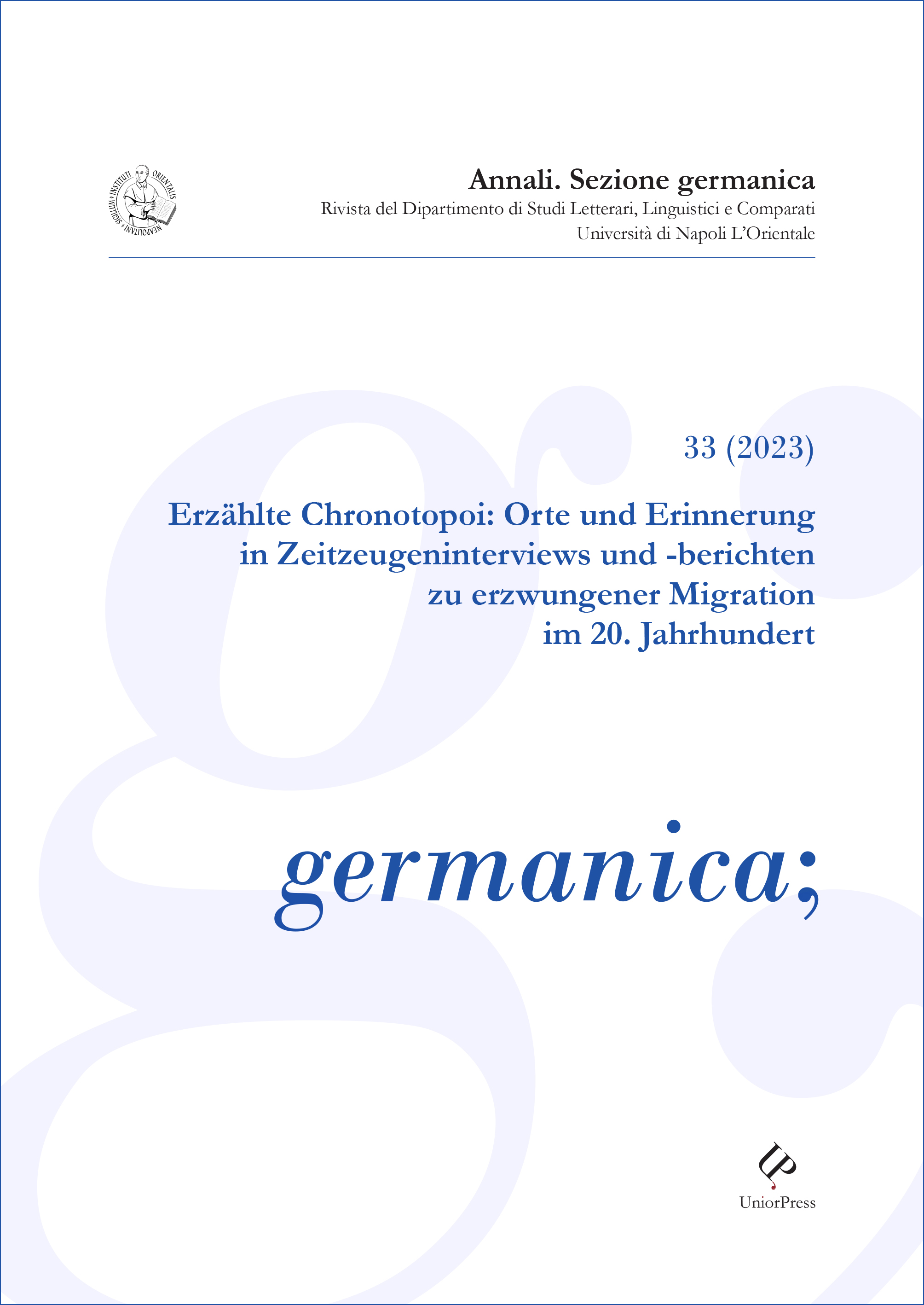Implicit manifestations of emotions in representations of places in interviews with Jehuda Steinbach
DOI:
https://doi.org/10.6093/germanica.v0i33.10744Keywords:
emotions, e-implicatures, places, Israelkorpus, pragmaticsAbstract
The aim of this paper is to investigate the implicit expression of emotions in relation to representations of places in the so-called Israelkorpus, in particular in interviews with Jehuda Steinbach. Although the subject of the explicit expression of emotions in the Israelkorpus has been intensively investigated in recent years, the investigation of the implicit manifestations of emotions, however, has been rather marginalised. Nevertheless, the implicit expression of emotions plays a central role in this corpus. As the present analysis shows, because of their highly traumatic experiences, interviewees often have difficulties expressing their subjective emotional condition directly. After the theoretical discussion of the concepts of emotion and implicitness and after some methodological preliminary remarks, a qualitative analysis is conducted. The latter is mainly based on the innovative category of the so-called E-Implikatur theorised by Schwarz-Friesel, that can be defined as implicit emotional evaluation. The emotional and inferential potential of vagueness and figurative expressions will also be discussed.
Downloads
Published
How to Cite
Issue
Section
License
The authors who publish in this Journal accept the following conditions:
- The authors retain the rights to their work and give the magazine the right to first publish the work, simultaneously licensed under a Creative Commons License - Attribution which allows others to share the work indicating the intellectual authorship and the first publication in this magazine.
- Authors may adhere to other non-exclusive license agreements for the distribution of the version of the published work (eg deposit it in an institutional archive or publish it in a monograph), provided that the first publication took place in this magazine.
- Authors can disseminate their work online (e.g. in institutional repositories or on their website) before and during the submission process, as it can lead to productive exchanges and increase citations of the published work (See The Effect of Open Access).


